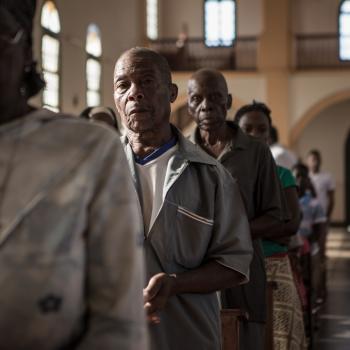 With the fall season of primetime television underway, the knives are out and the chopping blocks ready as critics, network heads, and, most importantly, the general viewing public, collectively decide which new shows will survive and which will be buried.
With the fall season of primetime television underway, the knives are out and the chopping blocks ready as critics, network heads, and, most importantly, the general viewing public, collectively decide which new shows will survive and which will be buried.
It’s always a bloody affair, one that can become as much a spectacle as the Roman amphitheater, fans waiting with bated breath to see which direction the ruling thumbs will point.
Personally, it was never something I attended much from the stands. Professionally, though, it is my line of work as a writer/producer in the arena of one-hour drama, which regularly puts me in the ring among pen-wielding colleagues and hungry lions.
The job description is hardly gladiatorial, but in an “empire of illusion” like ours, to quote the author Chris Hedges, the virtual comparison stands.
As one who ended up in the business despite my predisposed cynicism towards it, I was humbled early on by seeing from the inside what an extraordinary burden it is to run a television show.
I am not a showrunner, not yet at least. But I have worked under them long enough to wonder at times if I’d survive the job. Plenty others haven’t.
For it’s an insanely demanding job that requires an all-encompassing skill set: Being a good screenwriter who can run a writers’ room and keep it on course for a full season, with every story break and outline and draft and rewrite your ultimate responsibility. Overseeing countless other tasks outside the writers’ room and all at once, like casting, shooting, and editing, and hundreds of daily decisions about locations, props, wardrobe, hair and makeup, and more. Pleasing studio executives, and appeasing network counterparts, and vice-versa. Asking of a writer the kind of people skills that may not come so naturally to one. I’ll stop there.
Even on a bad show, the job is consistently overwhelming. If it endows the showrunner with a relative degree of omnipotence in the world of his or her creation (for the sake of a monotheistic argument we’ll leave studio and network heads, not to mention advertisers, aside for the moment), it simultaneously demands an even greater degree of omnipresence.
But even the egomaniacal showrunners would be hard-pressed to presume illusions of omniscience. The constant curveballs of production will quickly disabuse you of that, leading some to compensate with a greater sense of omnipotence. Fortunately, I’ve been blessed thus far not to work with that type.
Given comic parallels to those attributes we ascribe to the divine, our digital age of HDTV affords an interesting analogy: Jesus Christ as Showrunner of Showrunners, in addition to being King of Kings and Lord of Lords.
You laugh. So do I. (Or you don’t; and that’s that.)
But while much of today’s apocalyptic corners in the church might like the comparison insofar as the world is a shit-show slated for cancellation—in this case cancelled by the one who created it—the analogy isn’t so offhand.
To the contrary, it provokes some fairly meaningful reflections and questions.
For starters, a kind of heavenly writers’ room (as if!) seems to be at work in the very first chapter of Genesis, when the singular authoritative performance of God through the fifth day of creation suddenly reveals a plurality at work on the sixth: “Let us make man in our image.”
To this day that verse can catch me by surprise, arresting as it is to imagine a collective effort underway—inspired, sustained, and controlled by God indeed, but not, as it were, the proverbial one-man show.
And what is it that we do in a very earthly writers’ room with these characters on our hands, replete with wills, personalities, and agendas of their own? Ideally, we follow them as much as they follow us.
Granted that we lead them straight into the pit of all manner of sin for the sake of drama, thereby lending the showrunner and writing staff an equally satanic role in the vein of adversary.
If the overall analogy seems to fall apart there, recall God’s use of such a figure in the gambit that kicks off the book of Job.
Then there’s the aspect of production itself, whose myriad problems on a daily basis—budgetary constraints, scheduling flux, countless actor factors, location availability, and even the will of the weather, to name just a few—play far more a role in deciding what stories do or don’t get told than you might imagine.
Kind of like the real world in its interplay with the One who runs it?
On any well-run series, we have our “tent-poles” at the outset of the season, those major narrative markers where things turn irreversibly for the show and its characters. But what we don’t have necessarily is a predetermined sense of how we get there every step of the way.
In the Christian paradigm, to imagine Christ not only as the showrunner of the spectacle we inhabit, but also the star—impossible with men, but possible with God—is to locate these tent-poles in the Incarnation, Crucifixion, and the Second Coming.
(Find me a showrunner who hasn’t felt crucified at some point, and I’ll find you Atlantis.)
The analogy continues to unfold itself, all the way down to the screens in our living rooms—the veil, so to speak, there being no institution in the world more religious than Hollywood—where the gods of our creation deign to visit us.
In the end, it comes down to one simple question, the same one that I’ve asked of those showrunners under whom I’ve worked: How on earth do you do it?
How do you manage? How do you stand it? How do you not call it quits and take up fiction?











